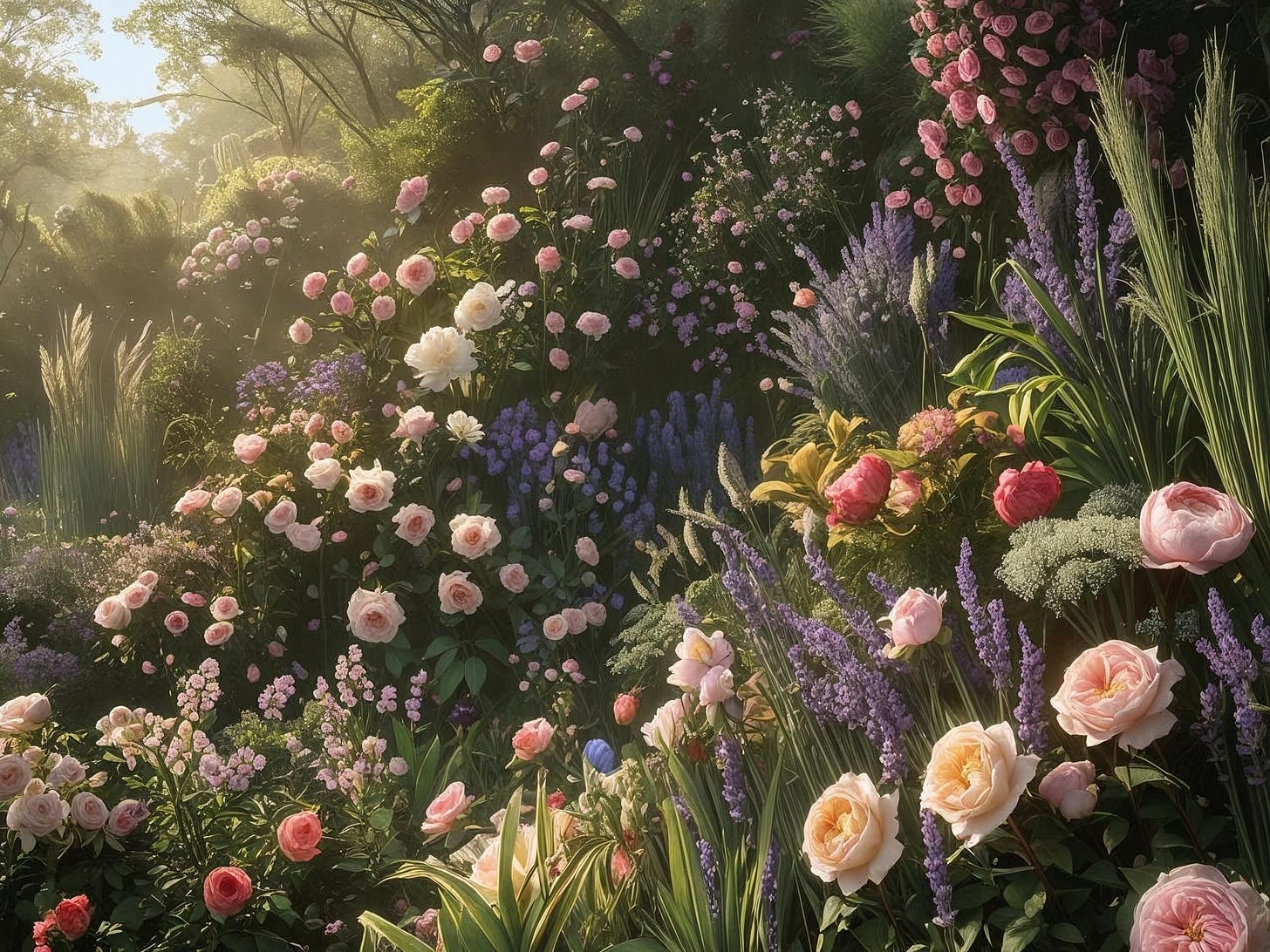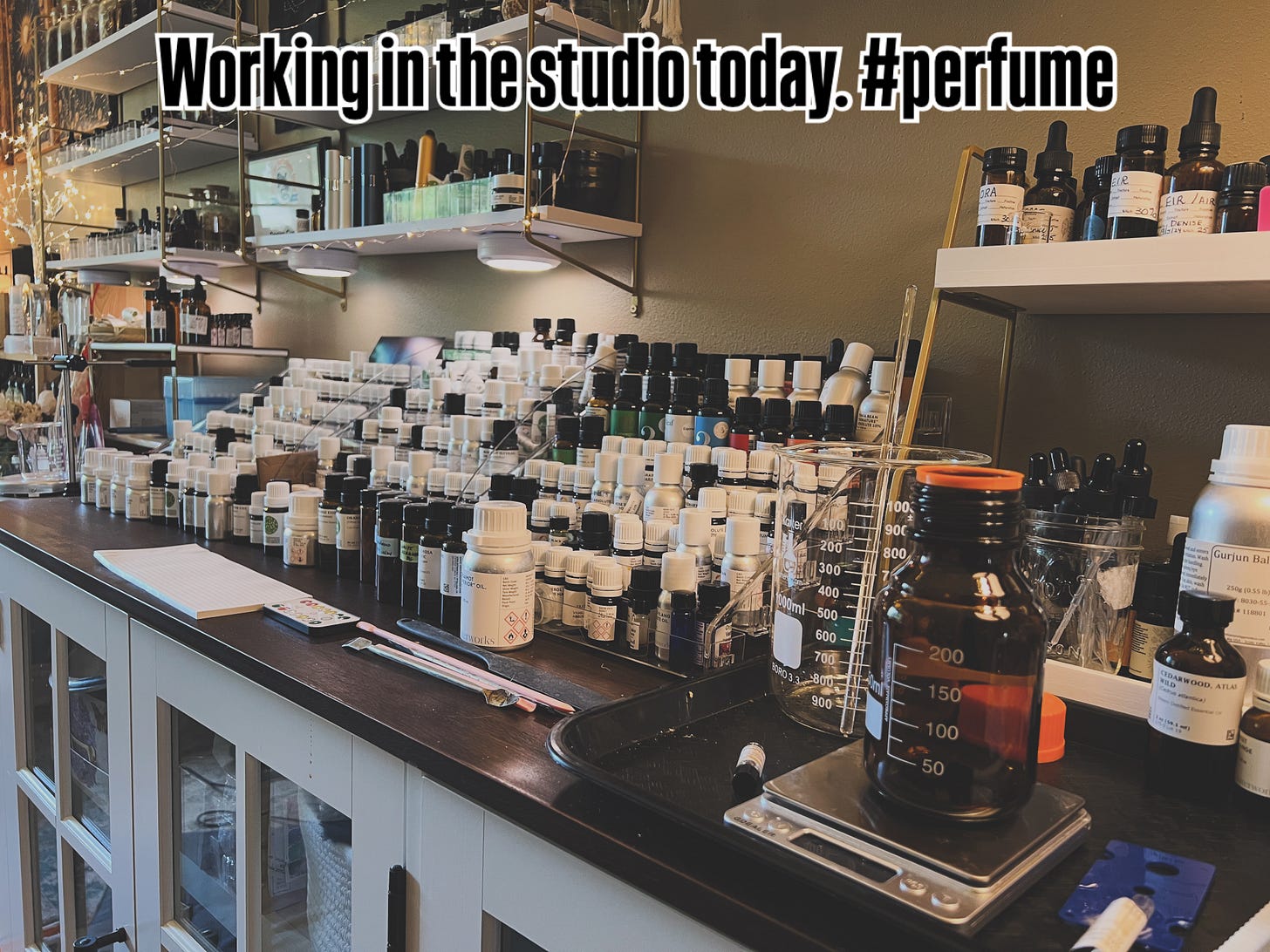Intentional Life/Work.
Crafting a life and business using permaculture principles.
Over the past two years, I’ve really dug into the world of perfume—not just mixing scents, but exploring its history, science, accents, formulations, and the art of layering. I've immersed myself in the history of perfumery, sampling over 200 of the top perfumes from the past 40–50 years so that I could train my nose and understand what makes a perfume thought to be truly great. I’ve been on a quest, not only to distinguish clean fragrances from natural and traditional ones, but to understand the very elements that define quality in a scent. All of that felt important as I am committed to using only 100% naturals - not because of dogma, but because of necessity. My family, like many people, are sensitive to many of the chemicals in traditional and synthetic perfume ingredients. Migraines, hives, flushing, and more. For those like me who can’t stand in a closed elevator next to someone wearing perfume, I get it. Testing those traditional perfumes required a lot of gloves, ventilation, and not letting anything touch my skin. But I learned a lot.
This journey has been as hands-on as it is intellectual. I’ve formulated, tested, and aged my own blends while also growing my own plants on my farm. Cultivating these botanicals has taught me so much—harvesting, preserving, and processing them using time-tested methods like enfleurage and tincturing. I even spend time gathering resin from downed branches and pine cones, connecting with nature in every step of the process.
I didn’t stop with just my own experiments. I’ve devoured historic books and modern texts alike, visited every perfumer's blog, substack, and website I could find, and sampled almost every new natural perfume brand out there (and found many “natural” perfumes are not quite natural after all). My level 3 aromatherapy training played a big role too—it helped me compare traditional perfumery notes with those in aromatherapy. I’ve sourced essential oils from trustworthy companies known for their sustainable practices, comparing their notes, longevity, and how they react on my skin and in my nose. What’s become clear is that pure plant essences are incredibly important. Even when many “clean” perfumes or molecular isolates cause reactions in some people, these natural ingredients offer a complexity and authenticity that is hard to beat and I can wear them on my skin all day without any issue.
This whole process has reshaped how I view my work. I no longer see it as merely creating perfumes, but as designing an entire system. I consider myself a permaculture systems designer—someone who understands that every part of the process is interconnected. It’s about more than just a pleasing aroma; it’s about cultivating a full-circle system that honors tradition, sustainability, and mindful living. From the seed to the bottle, every step is an opportunity to support the ecosystem and make ethical choices. It is about respecting the plants, the environment, our ingredients, the people who will wear them, and how we produce them.
If you want an invitation to our online launch party for Analu in July, please go subscribe and you will get the invite! https://www.analuperfume.com
My biz partner Amy and I are so close to launching our new perfume - Analu, a line that is 100% natural and completely free of synthetics - and that brings a lot of excitement and thoughts. We have spent hours and hours every week for 2 years working on this together, and navigating also how to do this with different likes, dislikes, experiences, understanding, and perspectives. With this idea of a brand I myself have been focusing not only on a fragrance; but a vision of an organic, functioning, and ethically built system.





